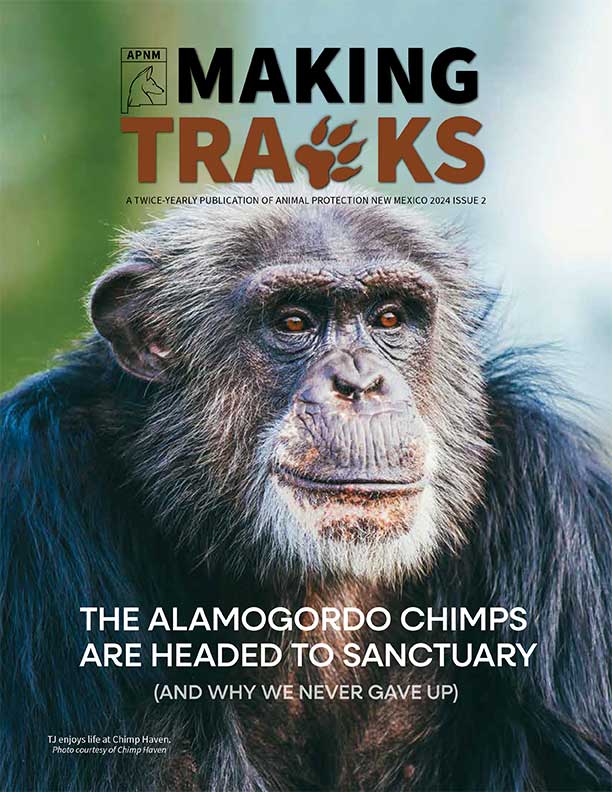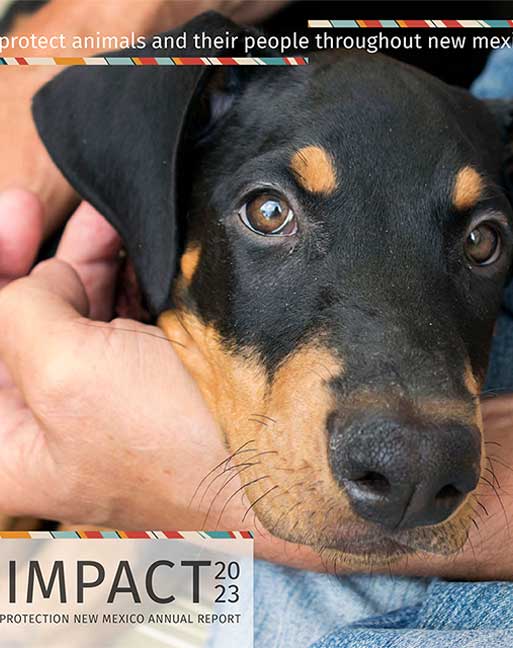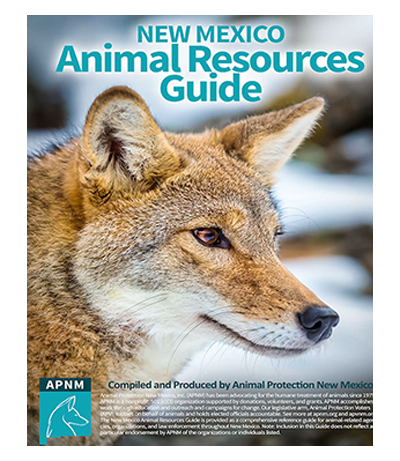The HBO/Max four-part docuseries, “Chimp Crazy,” aired its final episode in September, and with that, the “post-game” discussion began on what the series revealed. Not just about ‘pet’ chimpanzee ownership, but the fate of all chimpanzees, including the 23 still housed at the Alamogordo Primate Facility (APF) on Holloman Air Force Base.
“Chimp Crazy” highlights the absurdity of “owners” allowed to house these wild animals. As baby chimps grow, particularly as they reach sexual maturity, they become larger, more aggressive and will even bite out of fear to defend themselves or to establish dominance.
It’s been no surprise to see headlines like this story from Jezebel, “I Can’t Believe This Person Isn’t in Prison.”
The New Yorker featured a story that focused on Ms. Haddix and her family dynamic. The article’s author, Vinson Cunningham, finishes with this thought-provoking point:
“When we talk about the so-called Anthropocene—the era of humankind’s dominance over the Earth and its fate—we tend to mention the worsening climate and the steady dwindling of species. Less discussed is how, in our own low moments of self-degradation, we tend to drag our fellow-species down with us.
We undermine the dignity we claim to offer them by giving them names and places to stay. Sometimes the outcome is just a bad outfit; every once in a while, as in one horrifying scene in “Chimp Crazy,” it’s a bullet in the head. Domestication’s a drag.”
The New York Times critic Amanda Hess, wrote of Tonia Haddix in their coverage, “When Your Child Is an Animal.”
“As she appoints herself the parent to an imprisoned wild animal, she asserts an idealized form of mothering — one she describes as selfless, unending and pure. “Chimp Crazy” is the story of just how ruinous this idea of love can be, for the woman and the ape.”
Recently The Chicago Tribune ran a thoughtful piece penned by Megan Ross, Ph.D., President and CEO of Lincoln Park Zoo, entitled, “’Chimp Crazy’ is evidence of why primate protection is so important.” In it, Dr. Ross makes a key point on the hidden and tragic consequences of using chimps for pets and entertainment:
“Lincoln Park Zoo scientists helped author studies in 2011, 2015 and 2023 that show that when people see images of monkeys and apes being held by humans, in human clothing or in human settings, no matter the caption or context, interest for these animals as pets increases — and so do incidences of illegal trafficking.”
For those in the business of rescuing and caring for chimpanzees, this is the nature of the wall we must climb.
Americans are bombarded with all manner of chimp images from an early age: endless images of monkeys in human-like clothing and settings on Instagram, in television shows aimed at kids, and co-starring roles in movies. It all contributes to a low level of understanding of their needs, and worse, a lack of empathy for these creatures’ plight as ‘pets.’
The cultural conversation on chimpanzees from this program has been welcomed. While our focus is on the release of the 23 remaining federally owned chimps at the Alamogordo Primate Facility, we share the same goal as our colleagues who work tirelessly on freeing pet and entertainment chimpanzee: sanctuary for all.
Gratitude to our friends at People for the Ethical Treatment of Animals (PETA) for their extraordinary efforts to free these pet chimps from Haddix (and others) and get them to sanctuary at Save the Chimps. And for keeping USDA inspectors on notice, who are still not doing their job overseeing entertainment license holders like Tonia Haddix.
There is no federal regulation governing the private ownership of primates. One study estimates there are over 15,000 chimps held as ‘pets’ in the United States, and that number is growing. This despite the well-documented dangers to the owners and the public.
Keeping primates as ‘pets’ forces these intelligent, social animals into solitary confinement in homes, often leading to severe psychological and physical suffering. The same can be said for the APF chimps, where they suffer from isolation, heat, and stress.
APNM supports the passage of the Captive Primate Safety Act, which would ban the private ownership and trade of primates as ‘pets.’ And we won’t stop fighting to get the APF chimps to sanctuary.
Please join APNM in encouraging our New Mexico Congress members to:
- Support the Captive Primate Safety Act (S.4206 / H.R.8164)
- Urge NIH Director Dr. Monica Bertagnolli to follow the law as defined in the CHIMP Act, (which requires all federally-owned chimpanzees to be moved to sanctuary) and release all 23 chimpanzees currently held at the Alamogordo Primate Facility.
Find your US congress members here.
Your message matters and can help us in this relentless push for the chimps at APF to finally reach sanctuary.




